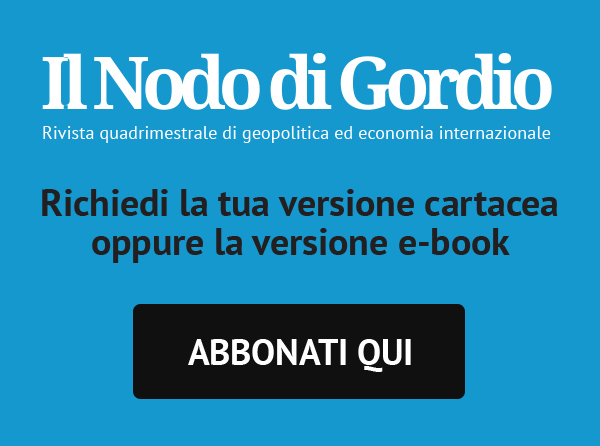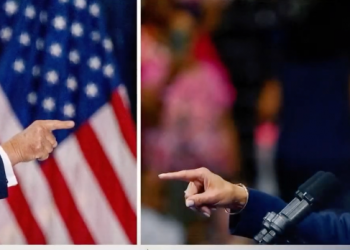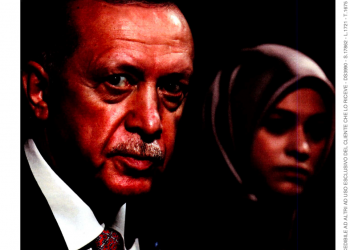Right from the start it seems that the people of the North African region are at odds on what concerns how to name their geographical area and this is the result of the rise of ethnic nationalisms and religious activism. The Amazigh people of Morocco, in the first place, and Algeria want heir governments to refer to the region as The Great Maghreb instead of The Arab Maghreb which is offensive to their cultural aspirations. Pan Arabists on the other hand want to keep the Maghreb called Arab and view the Amazigh demand as a form of neo-colonial drive. As for the Islamists, they argue that the Maghreb is Islamic and should be named accordingly. This quibbling puts forward the whole unresolved issue of identity in the region, and as a result more strife between the different groups is to be considered in 2015 and in the near future.
Maghreb : persistent headaches
The Maghreb is still torn today by so many persistent ailments to which it has not been able to find remedies and solutions. Democracy is the dream number one for the Maghrebis, while it seems to be at hand for Tunisians, yet it is a chimera for the rest of the people of the region because of the tugs of tradition and the past. Tribalism is stronger than ever in Libya which is de facto broken into several tribal statelets along religious and secular lines. Patriarchy and paternalism are very strong in Algeria and Morocco where the individual is still considered a subject and not a citizen for his « own good » because he has not come out of age yet, according to the heavy-handed establishment.
2015 is probably going to be more troubled than the year before, bearing in mind that the petro-countries like Algeria and Libya will definitely face more strife as the oil returns are dwindling due to the oil price inexorable downfall. These countries, to maintain the subsidies and rentier privileges will have either to make use of their sovereign funds are face popular uprisings.

Tunisia : democracy is at hand
As of now, Tunisia is the only Arab Spring country success story. It has aptly achieved democracy with the final act of the election of Caid Essebsi to presidency. However, the question is : will Tunisia safeguard its fragile democracy or will its strong and violent salafist movement highjack the dream of the nation ? However, the undemocratic Islamists are not the only menace lurking in the dark. The secular movement Nidaa Tounes, in power now, is a potential enemy of itself because it is a patchwork of many movements or groups of politicians, some from the time of the autocratic Bourguiba and others from the old party of the dictator Ben Ali, and some from small parties eager to achieve personal gains. Will these different groups put national interest first or will they fall into the trap of selfish interest and tribal feuding ? Unlike Annahda moderate Islamist party, which is highly regimented along religious beliefs, Nidaa Tounes lacks party discipline and might bring its intestinal problems at the surface. Undoubtedly the big win of the Tunisian Arab Spring uprising is its vibrant and vociferous civil society that will have to be taken into consideration in the future politics of the country.
Morocco: stability marred by corruption and mismanagement
Like what happened to the scialist party USFP from 1996 to 2006, power corrupted the Islamist PJD beyond belief. The head of the Government Benkirane, whose electoral plaform was constructed around the ideals of fighting endemic corruption, nepotism, mismanagement and embezzlement of funds has done none, instead, he is cutting food subsidies and irking the poor, who are the natural pool of his sympthisers. It seems to date, that Benkirane is a prisoner of his political coalition made of myriad parties that have nothing in common with his own and his ideals. The Mouvement Populaire -MP-, a Makhzen party, par exellence, has the largest number of corrupt ministers ever, but the poor Benkirane is unable to get rid of any of them for fear to lead to the crumbling of his political majority and the ultimate resort to early legislative elections, whose results he fears for the future of his party in power.
Besides a weak government unable to fulfill the wishes of the populace, the civil society is the only consolation of the population because of its efficiency and proximity. But, alas, though the Moroccan civil society is very strong and omnipresent, yet it is lacking funds and means, and in many cases it finds itself at loggerheads with the establshment as a result of its independence.
The media is also very strong and very verbal but it is all time whipped by the establishment, for its independence, and duly gagged for its denunciation of the Makhzen and its undemocratic pursuit of political absolutism.
The winner of this situation is undoubtedly the monarchy, that because it is a symbol of stability, is going back on the promises of devolution of power made during the Arab Spring era.
Algeria: less petro-dollars and more pains and troubles ahead
Algeria is a strong and big country in Africa, for sure, but at the same time very weak and fragile. The President Bouteflika is in a wheellchair unable to talk or move and totally incapacitated by illness. In a democracy, he should have resigned a long time ago and be replaced by an able statsman, but Algeria is not democratic, it is a kind of « military monarchy » ruled by generals grouped in an intelligene body called DRS, that sees that their interests are safeguarded in the first place, even if violence (referred to as legitimate vioence in their internal literature) is to be used as what happened when the army annulled the victory of the Islamist FIS party in 1992 and declared war on the group.
In Algeria, the military have always ruled through a civilian frontman for fear to face the people’s wrath. They prefer a collegial rule behind the scene, this way nobody is, by name, responsible for the wreckage of the ship « Algeria. » This collegial leadership, also, allows them to profit from oil revenues anonymously and the president’s job is to do the mopping up, when necessary.
But, now, as the oil revenues are drying up the military are faced with two hard choices:
- Stop the subsidies and face up to a popular uprising: the Algerian Spring, which would mean the end of military rule and the beginning of new era fraught with problems especially if the Amazigh decide on a unilateral declaration of autonomy or statehood which could lead to the fragmentation of Algeria, like what is happening in Libya currently;
- Keep the subsidies, to preserve social peace, and make use of the sovereign fund and, thus, squander the development chances of this country in the short and, probably, even in the long run.
The chances are the military will opt out for the second choice to stifle any nascent democratic sentiment in this country.
Libya: the failed state par excellence
Libya, is well into its second year of the somalization process, which is definitely getting worse and worse, as the country will, soon, be running out of cash. In the west, the Fajr (dawn) Libya movement, made of a myriad of Islamist groups modeled along the IS (Islamic State) type of government, that are together for business but it does not mean that they are united. Far from that, they are fragmented along religious schools of thought or dogmas. Their wars when they will flare up will be deadly and terrible, because each group believes, hard like a nail, that it holds the only religious truth there is.
The Karama (dignity) movement based in the east is led by the retired general Haftar, believed to be in the pay of the Americans and the allegiance of Saudi Arabia and UAE. Militarily speaking, he lacks the biting edge necessary to crush the Islamists. So, the feud between west and east will rage for quite sometime, with no possible winner. And the more this situation lasts, the more Libya will sink in the quicksand of failure. Probably, the only magic potion that could resuscitate the country is the duly return of the Senussi conservative monarchy, but will all the sides accept this painful solution ? The answer for the time being is NO.
A final word
In spite of the promising democracy of Tunisia and the proverbial stability of Morocco (known locally as the Moroccan exception), the Maghreb is entering in 2015 an era of uncertainty because if things go bad in Algeria and worsen in Libya, the other two countries will feel the tremors and might, as a result, loose their equilibrium and, ultimately, their shaky stability. However, these are extrapolations and only time can show.
Mohamed Chtatou

















